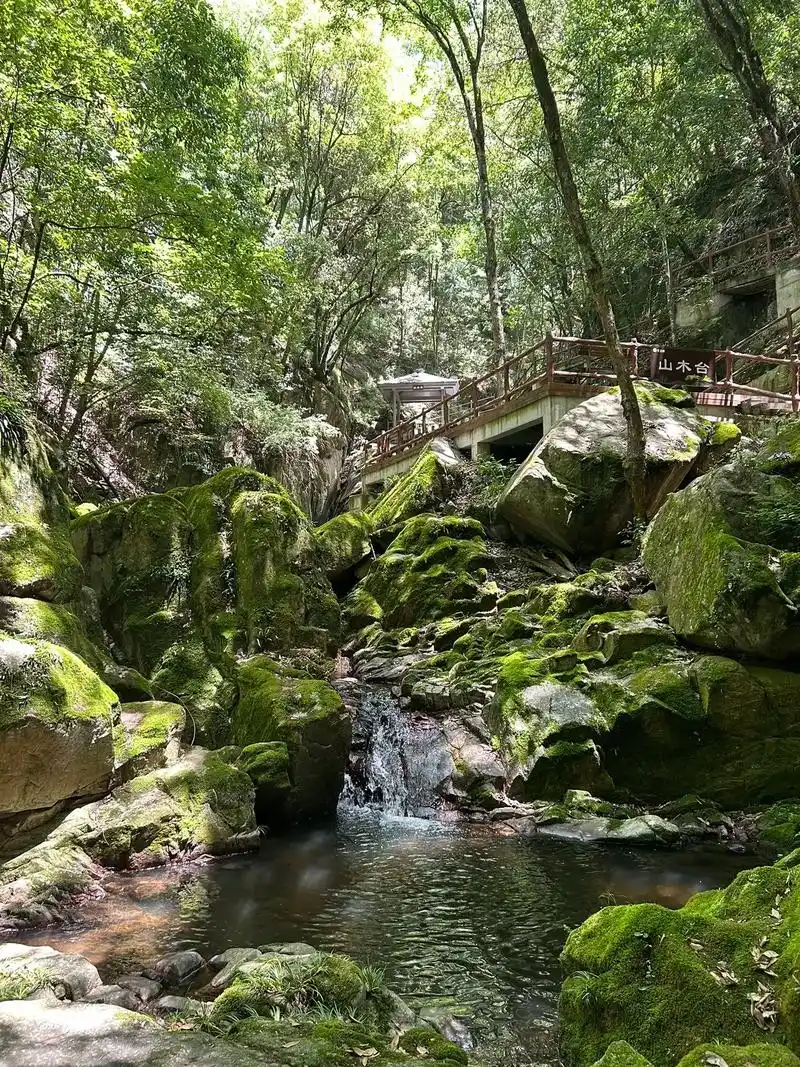China Travel
Affordable China Getaways: Ningbo’s Tianyi Pavilion and Coastal Temples on a Budget
Ningbo on a Dime: A Cultural Journey Through Tianyi Pavilion and the Serene Coastal Temples
For the discerning traveler seeking an authentic Chinese experience beyond the well-trodden paths of Beijing and Shanghai, the vibrant port city of Ningbo in Zhejiang province offers a compelling and surprisingly affordable alternative. A harmonious blend of deep historical roots, maritime prosperity, and serene natural beauty, Ningbo is a destination where one can immerse themselves in profound culture without draining their wallet. This journey focuses on two of its most captivating, yet budget-friendly attractions: the venerable Tianyi Pavilion, a sanctuary of ancient wisdom, and the cluster of tranquil coastal temples that dot the nearby shores, promising a trip rich in spirit and light on expense.
Ningbo: A Gateway to Affordable History
Ningbo, whose name translates poetically to "Serene Waves," has long been one of China's most significant port cities, a key node on the ancient Maritime Silk Road. This history of trade and exchange has endowed it with a unique, outward-looking culture and a wealth of historical sites. Unlike some major tourist hubs, Ningbo retains a more relaxed pace of life, and its attractions are often significantly less expensive to visit. Affordable public transportation, including a modern metro system and inexpensive taxis, makes navigating the city effortless. Street food stalls offer delicious local specialties like Ningbo Tangyuan (sweet glutinous rice balls) and fresh seafood for just a few dollars, allowing travelers to savor authentic flavors while sticking to a tight budget.
The Heart of Culture: Tianyi Pavilion Museum (天一阁博物院)
Nestled in the heart of the city, the Tianyi Pavilion is not merely a library; it is a symbol of cultural preservation, a living monument to the power of the written word. Founded in 1561 by Fan Qin, a retired Ming dynasty official, it is recognized as the oldest existing private library in Asia. For a modest entrance fee, visitors gain access to a sprawling complex that is far more than a single building—it's a beautiful classical garden ensemble of pavilions, rockeries, ponds, and halls dedicated to the art of books.
The story of Fan Qin is the soul of Tianyi. Having spent his life collecting rare books, his dying wish was for his descendants to uphold a strict family rule: the library's collection was to be kept intact for future generations. The family guarded this treasure through war, upheaval, and natural disaster for over four centuries. The name "Tianyi" itself, meaning "Unity of Heaven and Earth," was taken from a verse in the I Ching (Book of Changes) referring to the element of water, chosen symbolically to protect the wooden structures from the constant threat of fire.
Walking through the serene gardens, the hustle of the modern city fades away. The pathways lead you through the main library building, where antique bookshelves and reading desks are preserved. While the most precious volumes are carefully protected, the atmosphere is palpable with scholarly pursuit. The complex also houses reconstructed ancient dwellings moved from other parts of Ningbo, a gallery of intricate stone steles carved with calligraphy, and exhibitions on the art of printing and bookbinding.
Spending a morning or afternoon at Tianyi Pavilion is an exercise in quiet contemplation. It is a place to appreciate the immense value placed on knowledge and heritage in Chinese culture, an experience that is both intellectually enriching and incredibly affordable.
A Spiritual Escape: The Coastal Temples of Ningbo’s Outskirts
Just a short and inexpensive bus ride from the city center, the character of Ningbo shifts from scholarly to spiritual. The coastline, particularly to the northeast near the town of Xiangshan, is home to several breathtaking temples that offer peace, stunning architecture, and dramatic ocean views, all for a minimal entry fee or sometimes even for free.
Asoka Temple (阿育王寺, Āyùwáng Sì) One of the most significant and accessible is Asoka Temple. Renowned throughout the Buddhist world, it is one of the few temples in China that claims to possess a genuine relic of the Buddha himself—a śarīra housed in a magnificent stupa. Unlike some temples that feel like crowded tourist attractions, Asoka retains a powerful aura of active worship and tranquility. The complex is vast, with multiple grand halls, peaceful courtyards, and ponds filled with turtles. Monks chant, visitors pray, and the scent of incense hangs heavy in the air. The best part? There is no entrance fee, making it one of the most profound free cultural experiences in the region. Donations are welcome but never pressured.
Tiantong Temple (天童寺, Tiāntóng Sì) Nestled in the lush Taibai Mountains, a short journey from Asoka, lies the serene Tiantong Temple. Surrounded by ancient pine trees and a serene forest, this temple is considered one of China's major Zen (Chan) Buddhist monasteries. The approach is spectacular, with a long, tree-lined path leading to the majestic entrance gates. The temple complex is arranged along a central axis, featuring immense halls housing golden statues of Buddhas and Bodhisattvas. The scale is awe-inspiring, yet the mountain setting ensures an overwhelming sense of peace. The entrance fee is minimal, and the opportunity to hike in the surrounding hills after your visit adds a free natural bonus to the spiritual journey.
Qita Temple (七塔禅寺, Qītǎ Chán Sì) For those who prefer to stay within the city limits, Qita Temple, or the "Seven Pagoda Temple," provides a perfect urban oasis. Located in Ningbo’s city center, this active monastery is a hub of daily religious life. Its namesake seven pagodas stand at the entrance, a unique and photogenic feature. While smaller than Asoka or Tiantong, it is no less impressive, with beautifully maintained halls and a constant flow of local worshippers. The low entrance fee makes it an easy and rewarding stop to witness living Buddhist practice amidst the urban landscape.

Crafting Your Budget-Friendly Ningbo Itinerary
A fulfilling two-day Ningbo getaway is entirely feasible on a budget.
- Day 1: Start with a full morning at Tianyi Pavilion. Afterwards, enjoy a cheap and delicious lunch at a nearby local noodle shop. Spend the afternoon exploring Moon Lake (Yuehu), a historic park area adjacent to Tianyi, or visit the free Ningbo Museum, an architectural masterpiece that tells the city's long history.
- Day 2: Take a local bus (a very affordable option) to the coastal temple area. Visit Asoka Temple in the morning, absorbing its sacred atmosphere. For lunch, simple vegetarian meals are often available at or near the temples for a small donation. In the afternoon, take a taxi (which remains inexpensive if shared) to Tiantong Temple for a walk through its forested grounds before heading back to the city.
Accommodation in Ningbo is plentiful and offers great value. Budget-friendly hostels and mid-range business hotels provide clean, comfortable rooms at a fraction of the cost of those in first-tier cities.
In conclusion, Ningbo presents a unique proposition for the budget-conscious traveler: a deep, authentic cultural experience that doesn't compromise on depth or beauty. It is a city where you can stand in awe of humanity's dedication to preserving knowledge in the hallowed halls of Tianyi Pavilion and then, just a short journey away, find your own moment of peace in a cliffside temple listening to the waves mingle with chanting monks. It’s a proof that the most valuable travel experiences—those of connection, wonder, and reflection—are often the most accessible.
-
上一篇

Budget China: Wenzhou’s Yandang Mountain and Seafood Stalls Without Overspending
**BudgetChina:Wenzhou’sYandangMountainandSeafoodStallsWithoutOverspendi
-
下一篇

Cheap China Travel: Hangzhou’s Lingyin Temple and West Lake Boating for Budget Tourists
**AffordableSpiritualandScenicDelights:ExploringLingyinTempleandWestLa
相关文章
- Budget China: Fuyang’s Ecological Parks and Rural Scenery for Under $35 a Day
- Cheap Travel in China: Bozhou’s Traditional Medicine Culture and Ancient Streets on a Budget
- Affordable China Destinations: Chizhou’s Jiuhua Mountain and Buddhist Sites on a Budget
- Budget-Friendly China: Huangshan City’s Villages and Tea Plantations on a Shoestring
- Cheap China Travel: Jingdezhen’s Porcelain Culture and Workshops for Less
- Affordable China Getaways: Yingtan’s Longhu Mountain and Taoist Heritage on a Budget
- Budget China: Nanchang’s Tengwang Pavilion and Gan River Night Views for Under $40 a Day
- Cheap Travel in China: Jiujiang’s Poyang Lake and Lushan Mountain Gateway on a Budget
- Affordable China Destinations: Yichun’s(Mingyue Mountain) and Hot Springs for Less
- Budget-Friendly China: Shangrao’s Sanqing Mountain and Ancient Villages on a Shoestring
发表评论
评论列表
- 这篇文章还没有收到评论,赶紧来抢沙发吧~

